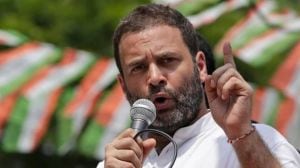Saudi guns for OPEC supply cut
Oil prices rose on Tuesday after OPEC’s most influential member Saudi Arabia threw its weight behind imminent supply cuts, though divis...

Oil prices rose on Tuesday after OPEC’s most influential member Saudi Arabia threw its weight behind imminent supply cuts, though divisions within the cartel prevented a steeper rally, analysts said.
US Light crude was trading 25 cents higher at $35.70, while London’s Brent crude climbed to $31.97, up 23 cents.
US prices had fallen to a session low of $35.25 a barrel, but rallied after Saudi Oil Minister Ali al-Naimi stated his opposition to relaxing supply curbs.
Naimi dismissed suggestions that the Organisation of the Petroleum Exporting Countries, which meets in Vienna on Wednesday, was to blame for prices that earlier this month hit a 13-year high.
Instead, he said speculators, economic growth and US refinery problems, as opposed to a shortage of OPEC crude, were the reasons behind high oil prices.
‘‘As far as Saudi Arabia is concerned April 1 has been implemented and I believe others have done so as well,’’ Naimi told reporters.
‘‘Throwing more oil on the market, because of prices where they are today, would be destructive,’’ he added. ‘‘That would make a glut and there is already a surplus on the market.’’
Some other OPEC ministers have suggested that a one million barrels per day output cut from April 1 should be delayed.
Kuwaiti Oil Minister Sheikh Ahmad al-Fahd al-Sabah said on Tuesday OPEC should postpone the cut and reconsider it at the group’s next planned meeting in Beirut on June 3.
‘‘I think as the Kuwait position that at this stage we should continue in cutting the overproduction but postpone the decision on the one million (barrels per day) until the Lebanon meeting, unless there is an emergency,’’ the minister told reporters before leaving for Vienna.
OPEC agreed in February to cut its output by one million barrels per day from April 1, and also to rein in over production above official quotas during March.
Loading programmes have shown that several OPEC members have already scheduled to load additional oil in April.
Market and industry sources said last week that oil export programmes indicated the cartel would deliver no more than one third of its planned one million bpd April output cut. ‘‘Obviously the split within OPEC is not healthy,’’ said analyst Steve Turner of Commerzbank.
Photos




- 01
- 02
- 03
- 04
- 05



























